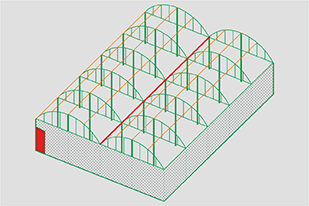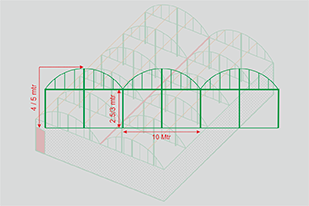Plug Nursery is a small-sized seedlings growning plant. This type of plug nursery is used for commercially raising vegetables and bedding plants. Similarly plug nursery may also refer to small sections of lawn grass sod. After being planted, lawn grass may somewhat spread over an adjacent area.
Planting from plug nursery reduces the time a crop resides in the ground, and is functional for those with limited space. Plug nursery can improve yields: a healthy, stocky plant will grow rapidly and symmetrically when planted out, with a potentially greater capacity to withstand pests, disease and drought. Raising some types of seedlings successfully can be difficult, so plug nursery can be beneficial for less experienced gardeners. Plug nursery are beneficial for gardeners who want to try a new variety or a range of varieties without purchasing numerous packets of seeds and starting the plants from seed. Plug plants are very useful if the sowing window is missed, and plug nursery can be purchased quickly to replace a crop which has failed.
• Less time and labor to transplant
• Higher survival rate of seedlings, because of reduced damage in transplanting and lower incidence of disease
• Higher quality and uniformity of transplants
• Decreased use of the pesticides
• Yields to the extent of the seeds genetic potential
• Earlier establishment and earlier harvest after transplanting
• Suitability for mechanical transplanting
• Reliable planning of production
• Fewer losses at transplanting
• Less transplant shock resulting in more uniform flowering compared with bare-root seedlings
• Small seeds have a better chance of even germination
• Less time in the field, fewer risks, less irrigation and sprayings
• Intensive care - Seedlings receive better care and protection (from animals, weeds and pests)
• Reductions of costs - Fewer seeds are used for raising seedlings in the nursery than for sowing
• Opportunity for selection - Raising seedlings in a nursery affords the grower an opportunity to select well grown, vigorous, uniform and disease free seedlings
• Extend a short growing season for late maturing crops – Seedlings grown in a nursery can be protected from the adverse conditions if any and when it become suitable for growth, Seedlings transplanted into the fields
• Young plants will make it possible to produce vegetables off-season, resulting in better market prices for the farmers



